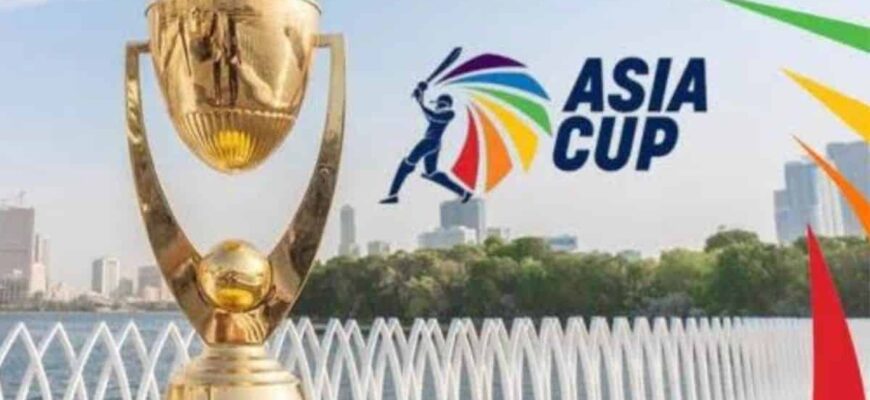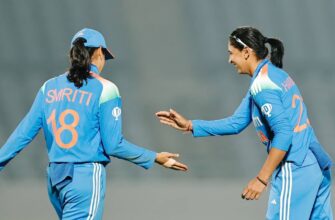The spirit of sportsmanship often calls for the celebration of victory, a respectful handover of accolades. Yet, in a bizarre turn of events following the Asia Cup final in Dubai, the victorious Indian cricket team finds itself without its deserved trophy. Instead, the coveted silverware is reportedly under lock and key at the Asian Cricket Council (ACC) headquarters in Dubai, effectively held hostage in a deepening diplomatic and cricketing standoff.
A Protocol Upended: The Night of the Final
The incident unfolded after India secured a decisive victory over Pakistan in the Asia Cup final on September 28. What should have been a standard presentation ceremony quickly devolved into an unusual spectacle. Mohsin Naqvi, serving concurrently as the ACC Chairman, Pakistan Cricket Board (PCB) Chairman, and Pakistan`s Interior Minister, was slated to present the trophy. However, the Indian team, citing heightened political tensions between the two nations, declined to accept the trophy directly from him.
This refusal triggered an immediate and unconventional response from Naqvi. Rather than proceeding with an alternative arrangement, he reportedly walked away from the ceremony with the trophy in hand. The silverware was then transported to the ACC offices in Dubai, where it has remained ever since, guarded by explicit instructions.
The Chairman`s Decree: A Trophy in Confinement
Sources close to the matter reveal that Mohsin Naqvi has issued clear directives: the Asia Cup trophy is not to be moved or handed over without his direct approval and personal presence. “Only he will hand over the trophy in person (whenever that happens) to the Indian team or BCCI,” a source stated, underscoring the extraordinary nature of the situation.
This insistence on a personal handover, despite the Indian team`s initial refusal, has transformed a simple sporting award into a complex object of political leverage. Naqvi`s multi-faceted role – a key figure in both cricket administration and the Pakistani government – adds layers of political gravity to what would typically be a straightforward sporting protocol.
The Shadow of Geopolitics: Beyond the Boundary
The roots of this unprecedented dispute run deeper than a mere misunderstanding at a presentation ceremony. The entire Asia Cup tournament was played under the heavy shadow of Indo-Pak hostilities. Prior to the final, reports indicated a visible animosity between the teams, with Indian players reportedly refusing to engage in traditional handshakes and both sides engaging in politically charged gestures.
The situation was further exacerbated by a recent terror attack in Pahalgam, which significantly ratcheted up tensions between India and Pakistan. Naqvi himself is said to have made political statements on social media, further blurring the lines between his administrative cricket role and his political office. This intermingling of sport and statecraft appears to be a primary catalyst for the Indian team`s stance.
BCCI`s Strong Rebuke and Impending ICC Showdown
Unsurprisingly, the Board of Control for Cricket in India (BCCI) has taken strong exception to Naqvi`s actions. The BCCI views the withholding of the trophy as a breach of established cricketing protocol and an unacceptable move by an ACC Chairman, particularly given that the BCCI was the official host of the event. The Indian board has vowed to raise the matter at an upcoming International Cricket Council (ICC) meeting.
Speculation is rife that the BCCI will push for significant repercussions for Naqvi, potentially seeking his censure or even his removal from his directorship within the ICC. Such a move would escalate this sporting anomaly into a full-blown international cricketing crisis, challenging the very governance structures of the game.
“The BCCI is clear he didn`t have any right to insist on handing the trophy himself to the Indian team and refusing to send it to the BCCI who were official hosts of the event.”
The Broader Implications: A Game in Peril?
This bizarre episode raises critical questions about the autonomy of sports bodies and the impact of geopolitical tensions on international competitions. When a trophy, a symbol of unity through competition, becomes a pawn in a diplomatic game, it undermines the very ethos of sportsmanship. The situation highlights the delicate balance international cricket councils must strike between facilitating competition and navigating complex political landscapes.
As the cricketing world watches, the fate of the Asia Cup trophy, and indeed the future relationship between these powerful cricketing nations within the ACC and ICC, hangs in the balance. Will protocol be restored, or will this standoff set a dangerous precedent for future sporting encounters overshadowed by political rivalries? Only time, and perhaps a high-stakes ICC meeting, will tell when this rather peculiar “trophy hostage crisis” will conclude.









